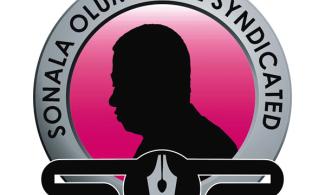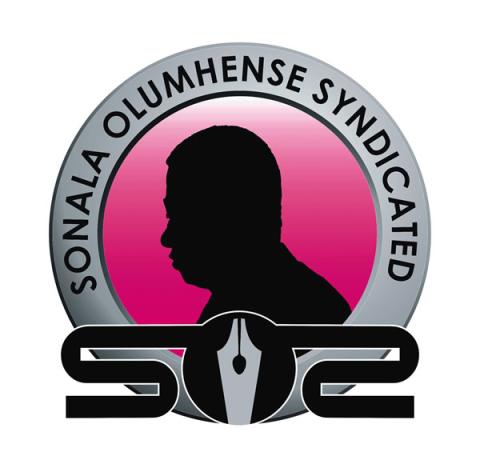
The Esan say it not the illness that kills the sick one; it is the relapse.
Relapse, that is negative history repeating itself, is what the All Progressives Congress (APC) must be careful of.
This party, having taken power on the basis of a firm promise to turn Nigeria away from the path to hell on which the Peoples Democratic Party (PDP) had placed it, seems to have turned to revisionism as its new weapon of choice.
Steadily, it appears to be re-reading Nigeria, re-inventing itself, and re-wording its journey. Let me review a few pertinent issues.
In a recent interview, APC chairman John Odigie-Oyegun made a joke of the vast presidential fleet it inherited. In preparing to replace the PDP, APC often cited wastage as part of the war it intended to wage on corruption, and the fleet was always a good example.
Among others, during the campaigns, presidential candidate Muhammadu Buhari described as a “waste” the existence of such a vast collection of jets. He expressed anger at the “billions of Naira” being deployed into maintenance and operational costs annually, and said he would end that era and fly commercially, citing the example of Britain where the Prime Minister does that.
“What is the difference between me and those who elected us to represent them?” he asked during a meeting with Nigerians in the UK. “Absolutely nothing! Why should Nigerian President not fly with [the] Nigerian public?”
“We intend…to bring back our National carrier, the Nigerian Airways,” he said. “We shall do this by bringing all the aircraft in the presidential fleet into the Nigerian Airways and within a year increase the fleet to about 20.”
That was in February 2015. But now, 14 months after APC took federal power, none of the 10 jets in the presidential fleet has been sold, or moved one inch towards an airline. Worse still, APC is casually declaring that the fleet is going nowhere.
Here is another example:
In May, following yet another adverse report of the Global Fund on Nigeria, the federal government set up two panels, the first to be headed by Health Minister Isaac Adewole, and the other by Auditor-General Samuel Ukura, to review aspects of the report.
Eager to demonstrate that Nigeria was truly embarrassed by the report, which showed the same pattern of looting by Nigerians as in the first report six years ago, the government also asked the EFCC to undertake a “full investigation” of the audit, and of previous ones.
Those investigations were not really necessary, the report of the Global Fund being exceedingly comprehensive. Still, not only did the government establish three layers of investigation, it gave the panels four weeks to complete their work.
Four weeks? That is nearly three months ago. Again, as in 2010, we have harvested silence. Not one person has been charged or arrested. Impunity is not being deterred by punishment, and the government is showing no sign of urgency.
Next: at the end of June, the government began the process of confiscating two mansions in London allegedly belonging to a former Chief of Air Staff, Adesola Amosu, and a former Chief of Accounts and Budgeting in the Nigerian Air Force, Jacob Adigun. The two men, who reportedly bought those homes in 2014, were being held responsible for about N21 billion in fraud.
The announcement was a welcome development. Following former British Prime Minister David Cameron’s characterization of Nigeria as being “fantastically corrupt,” Buhari had declared that his interest was not in an apology, but in Nigeria’s wealth being returned. The confiscation of the homes of the two former NAF officials was the beginning.
In that case, while the EFCC is on the job in London, what of the $10m home belonging to former President Umaru Yar’Adua, also in London, that he neglected to declare in 2007? When does that get confiscated?
In order to avoid being accused of bias, some Nigerians have suggested that Nigeria approach the UK and similar countries with a comprehensive request for such illegal properties.
Nigeria is known to be making such an effort in the United Arab Emirates, with which it signed bilateral agreements in January on repatriation of stolen funds and extradition of culpable officials. No less than $200 billion stolen by former Nigerian officials is believed to have been stowed away or invested in that country, and our diplomatic service was tasked with compiling a list of former Nigerian public officials involved. The deadline for that list: March 31, four months ago.
Last week, President Buhari came close to declaring his Ministers and advisers to be without sin, saying they should not be tainted with the brush of corruption without proof.
I agree, but that is a little awkward. It places an unfair burden on Nigerians who, by the way the war against corruption is structured, if it indeed has a structure, have been allowed almost no input.
During the electoral campaigns, Buhari indicated he would begin the battle by having his nominees for high office declare their assets. Sadly, his Ministers and Advisers have not been required to, and the good are lumped with the bad.
While some of them have in the past one year faced allegations of corruption, Buhari’s war does not place the burden of proof on them. How does the public provide “proof” if they appear to have his protection?
Why, for example, does Minister of Interior, Rtd Lieutenant-General Abdulrahman Dambazau continues to hold his post in the cabinet despite a series of allegations against him. Why does CBN Governor Godwin Emefiele continue to hold that job despite the allegations against him. Why is Chief of Army Staff Buratai in office when he should be confronting the allegations against him? Why should the public be providing proof of allegations when the government is providing clearance aforethought?
In August 2015, President Buhari said that only $400 million of the $1 billion Chinese loan meant for the Lagos-Kano rail line remained, and demanded an explanation of the Ministry of Finance as to why the funds had been redirected elsewhere.
That facility was one of several large loans the government of President Goodluck Jonathan took from the Chinese government that appear to have been misused. Among others, there is considerable quiet about the $500m that was supposed to have been spent on the building of four new airport terminals, or the $500m on the Abuja light rail project which has yet to see the light of day.
Nonetheless, President Buhari will shortly commission the Abuja-Kaduna part of the rail project he demanded an explanation of.
Meeting with officials of the Chinese Construction Company working on the $3.2bn. Mambilla Power Project last year, President Buhari said he wanted such projects completed quickly.
“Very soon, we will get together and redefine the project agreements for faster results,’’ he said.
In March, a court ordered the federal government to publish up-to-date information on Nigeria’s recovered loot since the return of civilian rule in 1999, and to set up a dedicated website to that effect. The government has ignored the order.
That order tallied with promises by the government that it would publish a full account of its loot recovery effort and the names of officials involved, promises it has found layers of excuses not to honor so far.
APC must be careful to remember that while it may now possess all the power in the world, it does not have enough to keep Nigerians hypnotized.
Tick tock.
[email protected]
Twitter: @SonalaOlumhense
